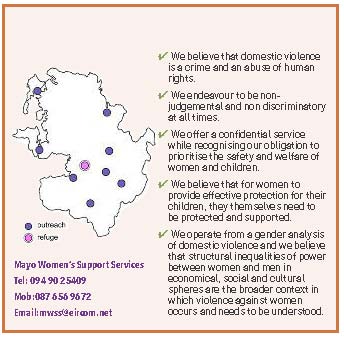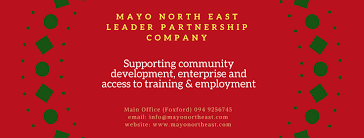
By Susan McCabe
Both men and women can be, and are, victims of domestic violence. One study found that 40% of domestic violence victims are men. Of course, the picture is a bit more complicated: While some groups have used this figure to argue that women are just as violent as men, most domestic violence directed at men is in the form of slaps and other low-level violence. Men are significantly more likely to resort to extreme violence.
So while domestic violence against men does occur and is a serious problem, women remain the primary victims. But for this reason, men who have faced abuse often find themselves stigmatised and ridiculed. If someone you love says they’ve been the victim of domestic violence, you should believe and support them, since no gender is safe, and no amount of physical strength or emotional fortitude protects against abuse.
It’s not just male domestic-violence survivors who find their stories disregarded. Myths about domestic violence are common, particularly among those most likely to abuse their partners. For instance, it’s common to hear some people say that, if hit, they will hit back, and so women who slap their partners should expect whatever violence the partners dish back out. These thoughts support a culture of abuse and victim-blaming.
The term ‘domestic violence’ goes beyond actual physical violence. It can also involve the destruction of property; isolation from friends, family and other potential sources of support; threats to others including children; stalking; and control over access to money, personal items, food, transportation and the telephone.
Domestic violence is more common than most people realise and is often unreported and misunderstood. Research suggests that in the region of 213,000 women and 88,000 men in Ireland have been severely abused by a partner at some point in their lives.
It occurs in all social classes, all ethnic groups and among people of every educational background.
It can be described as the use of physical or emotional force or the threat of physical force, including sexual violence in close adult relationships.
Domestic violence profoundly affects the physical, emotional, social and financial wellbeing of individuals and families. It is perpetrated against a person by that person’s spouse, intimate partner, ex-partner, other family members and/or another person at home. Domestic violence is pattern of repeated abusive and controlling behaviours that occurs within an intimate or family relationship and may even continue after the relationship has ended.
Domestic, sexual and gender-based violence have recently emerged as an increasingly important topic in the public debate both in Ireland and in the international community. While, in the past, discussion has been framed principally with respect to violence against women, men can also be victims of violence in the home and in relationships. Some figures suggest that women and men experience similar levels of domestic abuse.
Everyone has the right to live free from violence and abuse. If you are experiencing abuse, you are not alone. There is support available to you.
They know that taking that first step, like picking up the phone can be daunting and scary. But, staff in domestic violence services is highly trained and experienced. They are there to listen and respond to your needs. They will not pressure you to make any decisions.
Mayo Women’s Support Services is here to help
Mayo Women’s Support Services is the lead agency in Mayo providing a range of supports for women and children living with domestic violence. They believe that domestic violence is a crime and an abuse of human rights. They endeavour to be non-judgemental and non-discriminatory at all times. They offer a confidential service while recognising their obligation to prioritise the safety and welfare of women and children. They believe that for women to provide effective protection for their children, they themselves need to be protected and supported.
They operate from a gender analysis of domestic violence and they believe that structural inequalities of power between women and men in economic, social and cultural spheres are the broader context in which violence against women occurs and needs to be understood.
CRISIS ACCOMMODATION
At MWSS centre in Castlebar there are four family units and one single unit of crisis accommodation.
Workers are available to women Monday-Friday 9.30am-5.30pm; Saturday and Sunday 11am-3pm
As MWSS does not have full 24 hour cover there is a comprehensive security system in place.
CHILD SUPPORT
They have a range of supports for children who have experienced domestic violence.
OUTREACH
MWSS provides a comprehensive outreach service in 12 locations throughout the county. Mayo is a large rural county and many women often face difficulties in attending appointments at the centre due to lack of transport etc.
ADVOCACY
They provide accompaniment and advocacy with many agencies in the county, for example, Legal Aid, Court, County Council, Tusla, Intreo etc. MWSS is represented on various relevant fora at local, regional and national level.
Amen
A confidential helpline is open Monday to Friday, 9.00 am to 5.00 pm. The helpline is often the first point of contact for men, their concerned family members or friends.
Confidential Support Line: 046 9023718
General Office Enquiries: 046 9009109
Their mission is to provide best-in-class support and practical assistance to male victims of domestic abuse in Ireland, to promote increased awareness and understanding among the wider public of the issues surrounding domestic abuse; and to collaborate with statutory and non-statutory bodies to advance our aims and the needs of their clients. At Amen they believe that every man has the right to an abuse free relationship. They believe that domestic abuse against men is a crime, which is continuously overlooked and ignored in our society. This causes victims to feel isolated, ashamed and uncared for, which can cause them to blame themselves for the abuse they are receiving. They provide information and support to men or their friends or family that seek it. They believe that anyone can be a victim regardless of class, race, sexual orientation or physical ability. Our vision: they aim to break the stigma around domestic abuse towards men. They want men across the country to come forward about their abuse and for them to be treated equally to women with this issue. Amen Support Services was founded in December 1997 as a non-profit organisation established to provide information and support service for male victims of domestic abuse and their families. Amen has confidence in men’s ability to take back control over their lives and offers men the support they need to do this. Amen believes that victims / survivors of spousal abuse have the right to: Feel safe and secure in their own home.
An Outreach clinic is available in Dolphin House, Family Law Courts, East Essex Street, Dublin 2, on a weekly basis. This clinic supports men in preparation for court as well as emotional support and legal information to those who cannot attend the office in Navan. The clinic is facilitated by their Court Accompanier / AMEN Support Worker and is by prior appointment only. A number of other clinics are also being held in a variety of locations throughout the country. Please contact Amen on 046 9023718 for further information on details of the clinics or to make an appointment.


 The Social Inclusion and Community Activation Programme (SICAP) 2018-2022 is funded by the Irish Government and co-funded by the European Social Fund and includes a special allocation under the Youth Employment Initiative.
The Social Inclusion and Community Activation Programme (SICAP) 2018-2022 is funded by the Irish Government and co-funded by the European Social Fund and includes a special allocation under the Youth Employment Initiative.
Leave a Reply